Last Tuesday, Henrik Nicolay Sørgård defended, successfully and with great stamina, his thesis «Wetting in Porous Media: A Nuclear Magnetic Resonance Study» for the degree of ph.d. Stamina was surely needed, because only rarely has an opponent met better prepared than in this case — the number of well-designed slides exceeded 60. 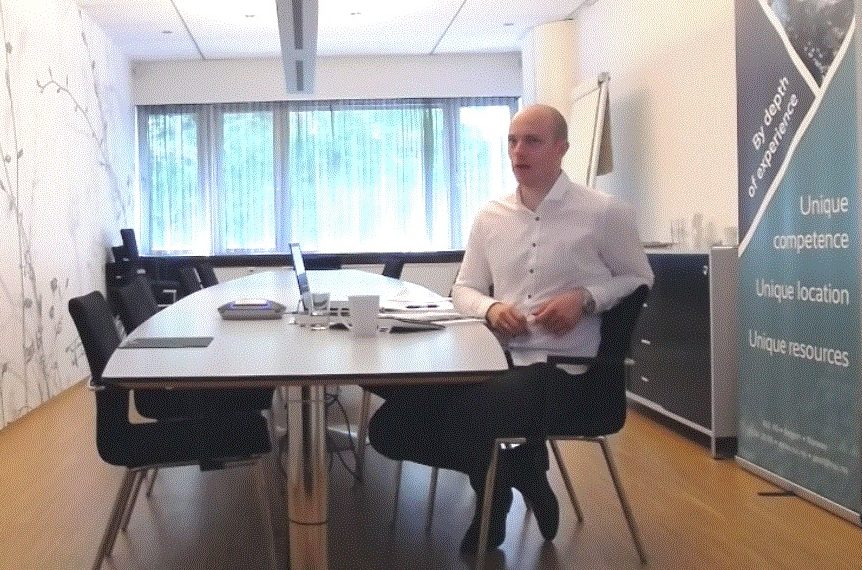 Congratulations are in order, and Henrik will surely enjoy his best summer vacation in years!
Congratulations are in order, and Henrik will surely enjoy his best summer vacation in years!
Vår kollega, Sofie Lekve, viser vegen når det gjeld å delta i den aktuelle samfunnsdebatten som gjeld sektoren vår. Les gjerne innlegget hennar i Khrono!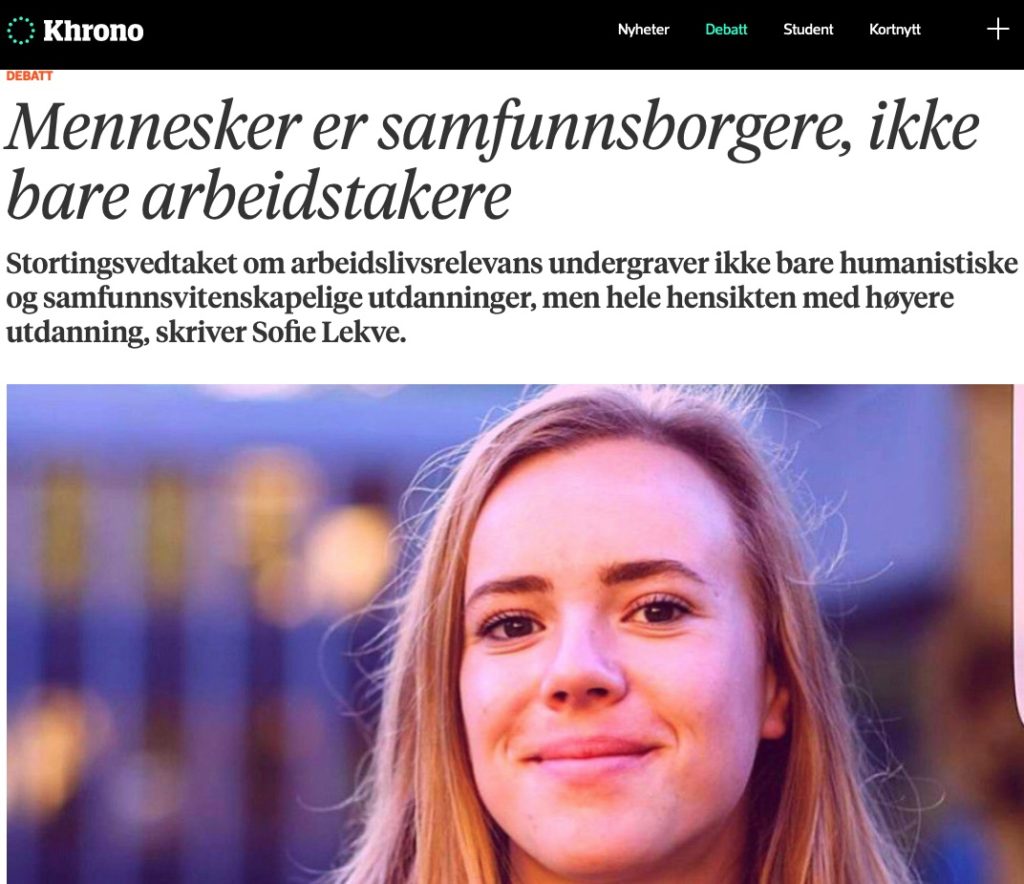
Alle artikler som sendes inn til tidsskriftet Naturen i perioden 1. september 2019 til 31. august 2020, er med i konkurransen om Fægriprisen 2020. Fægriprisen er en forfatterpris som oppmuntrer til god, skriftlig populærvitenskapelig formidling innenfor naturvitenskapelige fag. Vinnere av Fægriprisen 2020 blir kunngjort i desember.
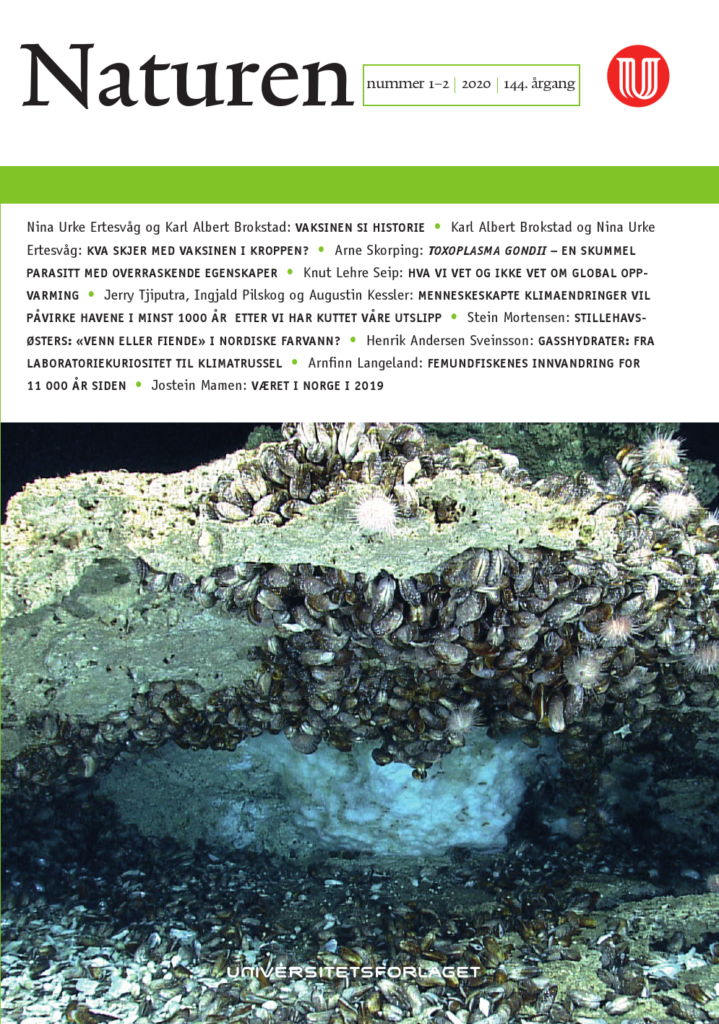 Prisen har to kategorier: Hovedprisen har vi valgt å kalle Fægri’s minnepris for populærvitenskapelig formidling i tidsskriftet Naturen (forkortet til Fægriprisen), og er på 10 000 kr. Den andre kategorien er for studenter (også Ph.D.-studenter!), er på 5000 kr, og har fått navnet Fægri’s studentpris for beste populærvitenskapelige artikkel i tidsskriftet Naturen (forkortet Fægri’s studentpris). Vi, dvs. redaksjonen i Naturen, håper med dette at potensielle forfattere vil være med å konkurrere om Fægriprisen 2020. Spesielt er det et stort ønske om artikler innen kjemiske tema! Vinnerne av prisen vil bli kunngjort av tidsskriftet Naturen og Universitetsforlaget. Forfatterveiledning finnes på Naturen’s hjemmeside.
Prisen har to kategorier: Hovedprisen har vi valgt å kalle Fægri’s minnepris for populærvitenskapelig formidling i tidsskriftet Naturen (forkortet til Fægriprisen), og er på 10 000 kr. Den andre kategorien er for studenter (også Ph.D.-studenter!), er på 5000 kr, og har fått navnet Fægri’s studentpris for beste populærvitenskapelige artikkel i tidsskriftet Naturen (forkortet Fægri’s studentpris). Vi, dvs. redaksjonen i Naturen, håper med dette at potensielle forfattere vil være med å konkurrere om Fægriprisen 2020. Spesielt er det et stort ønske om artikler innen kjemiske tema! Vinnerne av prisen vil bli kunngjort av tidsskriftet Naturen og Universitetsforlaget. Forfatterveiledning finnes på Naturen’s hjemmeside.
Have you ever visited an online poster session before? Today is your chance, when this year’s Nano100 students present their posters. The exhibition is open already, but the poster session with the presentees available to explain and elaborate starts at 1130 (waiting room opens at 1120). Welcome to all, and congrats to this year’s Nano100 students!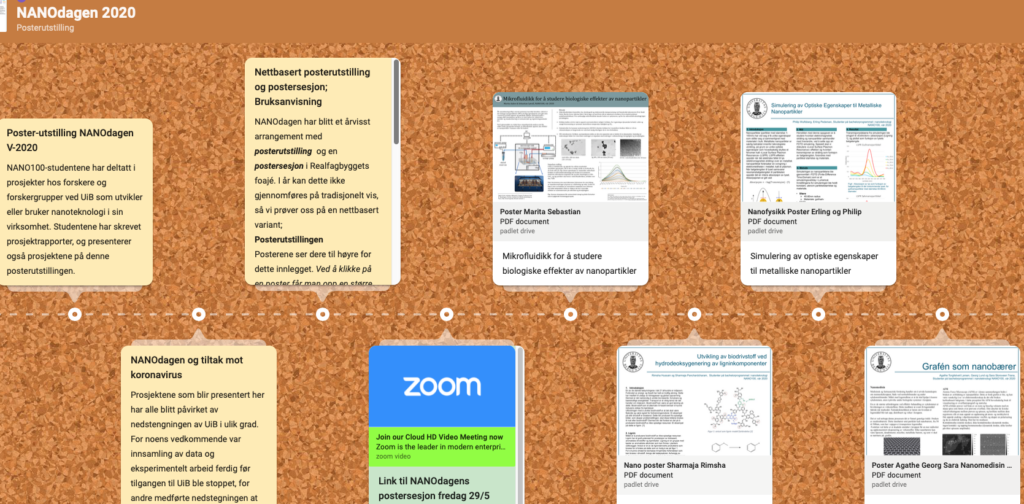
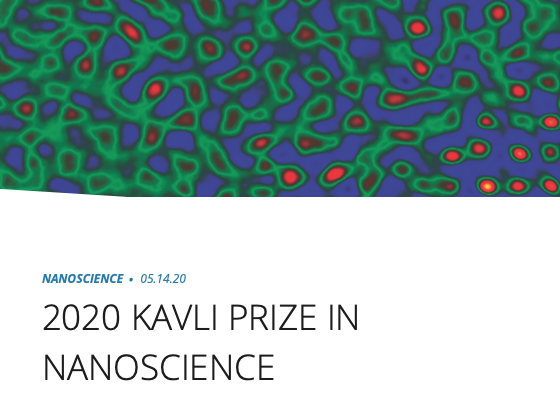 Today, the Kavli prizes for 2020 was awarded. Chair of the award committee for nano science, our colleague at the Physics department, professor Bodil Holst, had the honour of announcing the four winners.
Today, the Kavli prizes for 2020 was awarded. Chair of the award committee for nano science, our colleague at the Physics department, professor Bodil Holst, had the honour of announcing the four winners.
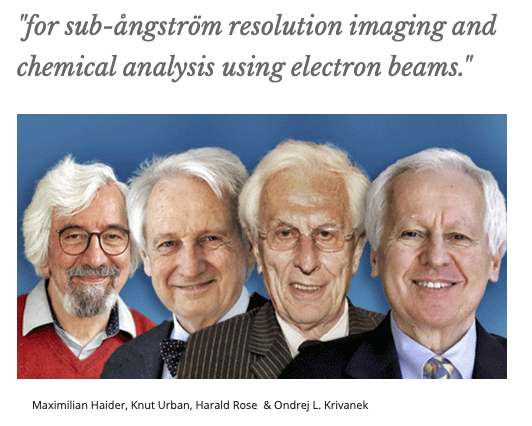 This years winners receive the award because of their work to develop very accurate and aberration-corrected lenses for focusing electrons, thereby developing transmission electron microscopy (TEM) and scanning TEM to sub-ångström resolution.
This years winners receive the award because of their work to develop very accurate and aberration-corrected lenses for focusing electrons, thereby developing transmission electron microscopy (TEM) and scanning TEM to sub-ångström resolution.
Gruppe B
Total number of ballots: 11
Total number of blank votes: 0
Elected: Beate Halsvik
1. vara: Christian Sant Gjermestad
2. vara: Andrea Estefania Carpinteyro Diaz
3. vara: Nina Henne
Gruppe D -studenter
Total number of ballots: 18
Total number of blank votes: 4
Valgt: Liv Helene Kolberg Sickel
Valgt: Mathias Brevik
1. vice: Nikolai Golten Fiskeseth
2. vice: Camilla Hallanger
3. vice: Kristine Lauve Irgens
4. vice: Johnny André Kristiansen Mardal
Study programs in the Norwegian university sector are usually funded by the government, with the full cost covered by base funding (60%) and result funding (study points achieved plus graduates; 40%). This model applies for instance to the pharmacy programs at UiO and UiT. The pharmacy program at the University of Bergen differs in this respect, in that only the result component (40%) of the funding is provided from Oslo. The lion’s share of the cost is thus covered by UiB central. It has been, and still is, difficult to accept such a large difference in how the pharmacy programs in Norway are funded.
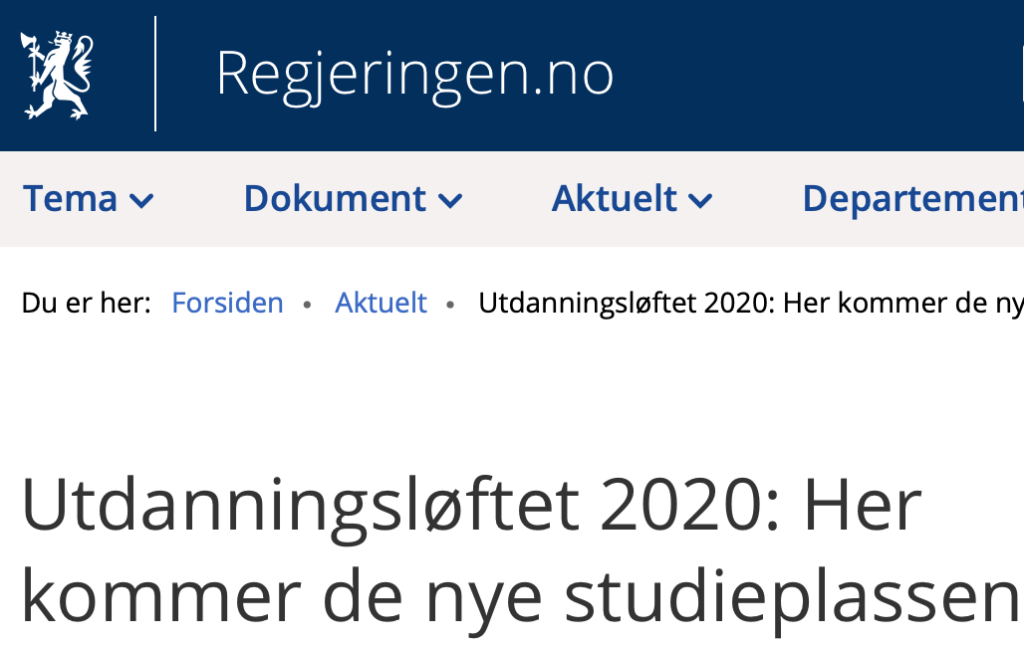 Today, the government announced how 4000 new study places will be distributed over institutions of higher education in Norway. 251 of the 4000 places are allocated to UiB as follows: 62 (health), 35 (teacher’s ed), 72 (MNT), 80 (economy, law) and 2 (new areas). And here comes the main point: 5 out of the 62 health slots will be fully financed pharmacy students! This calls for a celebration or what!
Today, the government announced how 4000 new study places will be distributed over institutions of higher education in Norway. 251 of the 4000 places are allocated to UiB as follows: 62 (health), 35 (teacher’s ed), 72 (MNT), 80 (economy, law) and 2 (new areas). And here comes the main point: 5 out of the 62 health slots will be fully financed pharmacy students! This calls for a celebration or what!
Last Wednesday, Markus Dörner was the first PhD candidate at our department to defend his PhD thesis at the comfort of his own home. The zoom-based event largely preserved the formal and timeless atmosphere of the physical dissertation ceremony and was a nice experience for active participants as well as spectators. The title of the thesis is «Investigation of the molecular and isotopic response to deposition, thermal maturity, hydrocarbon generation, and expulsion: A multidisciplinary approach based on the Cenozoic sequences on Svalbard.» Dr Dörner gave a very convincing performance in terms of presenting and defending his work. Congratulations!

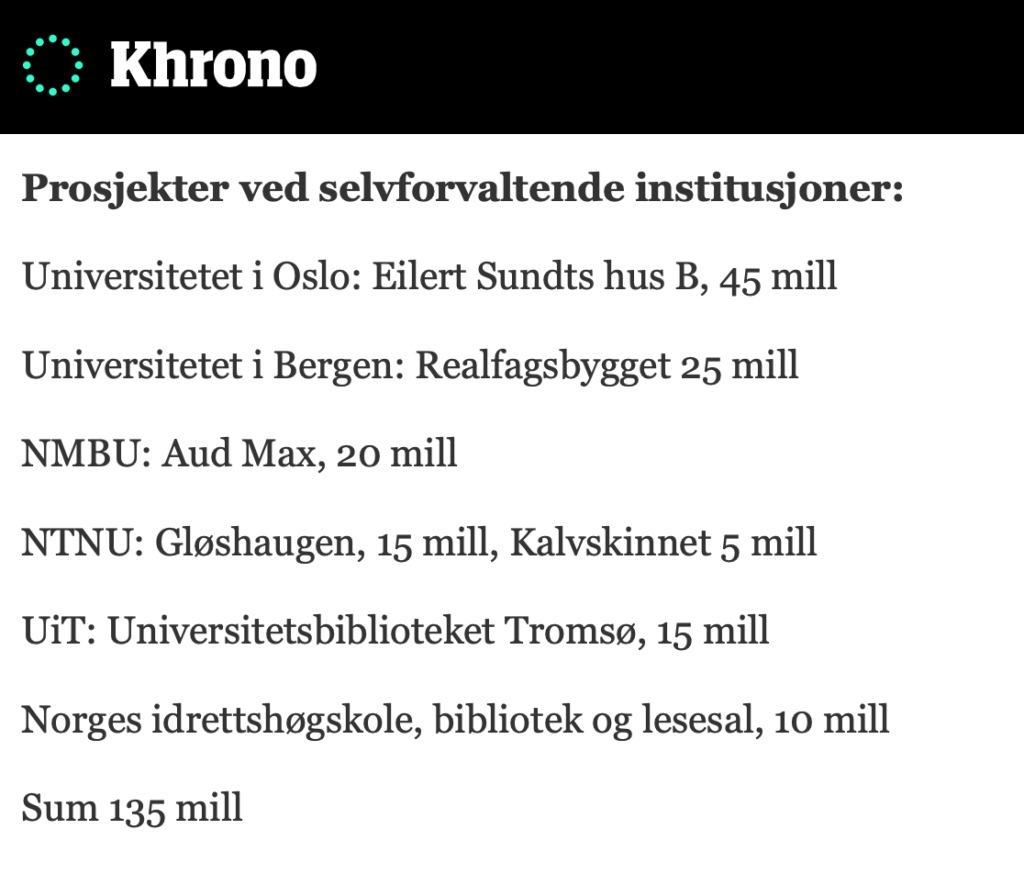 The Norwegian government has allocated money to selected projects for upgrading physical infrastructure for eduction. In the words of the minister for research and higher education, Henrik Asheim, «studentene ønsker også mer undervisning der de deltar aktivt. Det krever at vi har auditorier, laboratorier, verksteder og andre undervisnings-lokaler som gir bedre mulighet for deltakelse.» UiB receives 25 MNOK for upgrading chemistry laboratories in the Science building, under the explicit condition that UiB allocates matching funds or more, to the same purpose.
The Norwegian government has allocated money to selected projects for upgrading physical infrastructure for eduction. In the words of the minister for research and higher education, Henrik Asheim, «studentene ønsker også mer undervisning der de deltar aktivt. Det krever at vi har auditorier, laboratorier, verksteder og andre undervisnings-lokaler som gir bedre mulighet for deltakelse.» UiB receives 25 MNOK for upgrading chemistry laboratories in the Science building, under the explicit condition that UiB allocates matching funds or more, to the same purpose.
 Sunil Kumar Pandey has recently joined the Department of Chemistry as a researcher in organic synthesis and medicinal chemistry under Bengt Erik Haug group. His research area is innovation within the drug discovery project which is financed by BIOTEK2021-programme. Sunil has PhD degree from National Chemical Laboratories (Pune University) Maharastra, India. For details can visit his profil.
Sunil Kumar Pandey has recently joined the Department of Chemistry as a researcher in organic synthesis and medicinal chemistry under Bengt Erik Haug group. His research area is innovation within the drug discovery project which is financed by BIOTEK2021-programme. Sunil has PhD degree from National Chemical Laboratories (Pune University) Maharastra, India. For details can visit his profil.
 Congratulations are in order, and Henrik will surely enjoy his best summer vacation in years!
Congratulations are in order, and Henrik will surely enjoy his best summer vacation in years!
 Prisen har to kategorier: Hovedprisen har vi valgt å kalle Fægri’s minnepris for populærvitenskapelig formidling i tidsskriftet Naturen
Prisen har to kategorier: Hovedprisen har vi valgt å kalle Fægri’s minnepris for populærvitenskapelig formidling i tidsskriftet Naturen
 Today, the Kavli prizes for 2020 was awarded. Chair of the award committee for nano science, our colleague at the Physics department, professor
Today, the Kavli prizes for 2020 was awarded. Chair of the award committee for nano science, our colleague at the Physics department, professor 
 Today, the government
Today, the government 

 The Norwegian government has
The Norwegian government has 